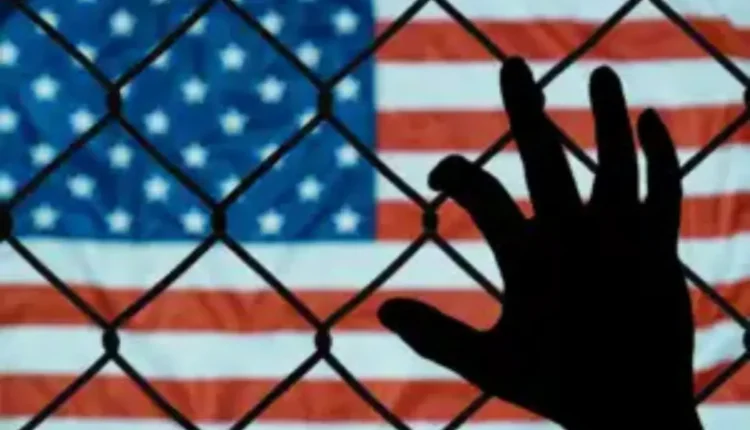International Students Navigate a New Era of Fear as U.S. Visa Revocations Surge
The Struggle of International Students: Visa Revocations and the Fear of Deportation
International students in the United States are facing a growing wave of uncertainty and fear as student visa revocations, a policy shift under the Trump administration, continue to rise. As of now, an estimated 1,800 students have already been affected by the wave of revocations. These visa terminations have disrupted the traditional college experience, shifting challenges from academics and socializing to concerns about deportation, legal rights, and personal safety.
The atmosphere on campuses across the country has become one of heightened anxiety. Students report a deepening sense of fear, with many constantly looking over their shoulders. One student shared how she feels a surge of anxiety whenever she notices unexpected shadows outside her door. Another student mentioned avoiding protests or rallies, fearful that simply being seen near one could have repercussions. “I now take longer routes to class to avoid any potential confrontations, just in case,” said a visibly concerned student.
Temporary Relief and Lingering Concerns
Though there has been temporary relief for some international students, it remains uncertain whether these measures will provide long-term security. Following protests and legal interventions, hundreds of international students saw their SEVIS (Student and Exchange Visitor Information System) records reinstated. However, a senior official from the Department of Homeland Security cautioned that these reinstatements are temporary, with the possibility of visa terminations returning once a new system is implemented.
While the system undergoes development, international students continue to grapple with the shifting landscape of their futures. Bhavya, a PhD student, shared the extreme precautions many students are taking. “We’ve been advised to fill out a form that allows a U.S. citizen to contact a lawyer on our behalf if something happens.
We walk around with red cards detailing what to do if we encounter an ICE agent, and we carry our visa papers everywhere,” she explained. Bhavya’s sentiments echo the broader feeling of unease among her peers, many of whom are now more focused on legal and safety measures than their academic pursuits.
Fear Silencing Student Voices
On university campuses, the atmosphere of fear has led to self-censorship and silence. Tarini, a student at Columbia University, shared how the wave of uncertainty has made students more cautious about their actions. “Earlier this year, I wore a keffiyeh to show solidarity with Gazans. Now, I avoid protests altogether,” she confessed.
Tarini also described how, before traveling home for spring break, Columbia University provided her with a burner phone and laptop to protect her privacy and ensure she could communicate securely. “I deactivated my social media accounts and consulted with an immigration attorney before leaving,” she added.
This climate of fear disproportionately affects certain groups of students. Sasha, a former PhD student, noted that the wealthier international students often feel they can find a way out if needed, while those on scholarships or stipends are especially vulnerable.
“These students avoid drawing attention, even to the point of steering clear of any situations that might attract the scrutiny of law enforcement,” Sasha explained. To prevent misunderstandings about income or unauthorized work, students have begun saving receipts from group dinners or keeping track of their spending.
Even student activities, which once provided a sense of normalcy and community, are now affected by the prevailing fear. At the college museum where Sasha worked, a noticeable decline in international visitors occurred after an exhibit on workers’ movements was described as being about “revolution.”
Legal Challenges and the Path Ahead
As the uncertainty persists, many international students are exploring legal options to challenge the visa revocations. Immigration lawyer Poorvi Chothani revealed that many of the cases she has handled involve minor infractions, such as DUIs or shoplifting charges. In one instance, a student’s car insurance lapse led to a charge, while another student faced consequences after their car skidded on ice and hit a guardrail.
The idea of filing a class-action lawsuit is gaining traction. Jeff Joseph, president-elect of the American Immigration Lawyers Association, expressed optimism about the potential for collective legal action. “With over 50 courts granting temporary restraining orders, the prospects of a class action seem likely. If the class is certified, it would mean that the government must reinstate all impacted students’ statuses while litigation continues,” Joseph said.
For many international students, the question remains: should they stay or go? Bhavya, reflecting on the challenges she faces, shared, “The work I do is meaningful to me, but with all that’s happening, the big existential question is, ‘Do I really want to be here?’”
Optional Practical Training (OPT) Under Pressure
Compounding the uncertainty for international students is the pressure on opportunities like Optional Practical Training (OPT), which allows F-1 visa students to work in the U.S. after graduation. Chothani explained that employers are becoming increasingly wary of hiring international students on OPT, fearing the risks of government scrutiny and audits.
“I’ve heard of companies that received notices asking for details on their OPT employees, with threats of local audits within five days,” Chothani said. As a result, many companies are reluctant to offer OPT opportunities, further diminishing the chances for international students to gain practical work experience in the U.S.
Also Read : Philippines Launches Digital Nomad Visa to Boost Tourism and Attract Remote Workers

